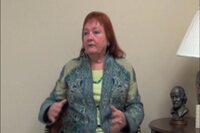| Title |
Jennings, Caril OH3_033 |
| Creator |
Weber State University, Stewart Library: Oral History Program |
| Contributors |
Jennings, Caril, Interviewee; Licona, Ruby, Interviewer |
| Collection Name |
Weber State University Oral Histories |
| Description |
The Weber State University Oral History Project began conducting interviews with key Weber State University faculty, administrators, staff and students, in Fall 2007. The program focuses primarily on obtaining a historical record of the school along with important developments since the school gained university status in 1990. The interviews explore the process of achieving university status, as well as major issues including accreditation, diversity, faculty governance, changes in leadership, curricular developments, etc. |
| Image Captions |
Caril Jennings |
| Biographical/Historical Note |
The following includes the transcript and a video clip from an oral history interview with Caril Jennings. |
| Subject |
Ogden (Utah); Weber State University |
| Digital Publisher |
Stewart Library, Weber State University, Ogden, Utah, USA |
| Date |
2014 |
| Date Digital |
2017 |
| Temporal Coverage |
1966; 1967; 1968; 1969; 1970; 1971; 1972; 1973; 1974; 1975; 1976; 1977; 1978; 1979; 1980; 1981; 1982; 1983; 1984; 1985; 1986; 1987; 1988; 1989; 1990; 1991; 1992; 1993; 1994; 1995; 1996; 1997; 1998; 1999; 2000; 2001; 2002; 2003; 2004; 2005; 2006; 2007; 2008; 2009; 2010; 2011; 2012; 2013; 2014 |
| Medium |
oral histories (literary genre) |
| Spatial Coverage |
Ogden, Weber County, Utah, United States, http://sws.geonames.org/11788968, 41.22809, -111.96766 |
| Type |
Text; Image/MovingImage |
| Conversion Specifications |
Filmed using a Sony HDR-CX430V digital video camera. Sound was recorded with a Sony ECM-AW3(T) bluetooth microphone. Transcribed using WAVpedal 5 Copyrighted by The Programmers' Consortium Inc. Digitally reformatted using Adobe Acrobat Xl Pro. |
| Language |
eng |
| Rights |
Materials may be used for non-profit and educational purposes; please credit University Archives, Stewart Library, Weber State University. |
| Source |
Jennings, Caril OH3_033; Weber State University, Stewart Library, University Archives |
| Format |
application/pdf; video/mp4 |
| ARK |
ark:/87278/s6rs0101 |
| Setname |
wsu_oh |
| ID |
111900 |
| Reference URL |
https://digital.weber.edu/ark:/87278/s6rs0101 |
| Title |
Jennings, Caril OH3_033 |
| Creator |
Weber State University, Stewart Library: Oral History Program |
| Contributors |
Jennings, Caril, Interviewee; Licona, Ruby, Interviewer |
| Description |
The Weber State University Oral History Project began conducting interviews with key Weber State University faculty, administrators, staff and students, in Fall 2007. The program focuses primarily on obtaining a historical record of the school along with important developments since the school gained university status in 1990. The interviews explore the process of achieving university status, as well as major issues including accreditation, diversity, faculty governance, changes in leadership, curricular developments, etc. |
| Image Captions |
Caril Jennings |
| Biographical/Historical Note |
The following is an oral history interview with Caril Jennings conducted on February 14, 2014 by Ruby Licona. Jennings discusses her background and her career at Weber State in the Department of Performing Arts for over 22 years. |
| Subject |
Ogden (Utah); Weber State University |
| Digital Publisher |
Stewart Library, Weber State University, Ogden, Utah, USA |
| Date |
2014 |
| Date Digital |
2017 |
| Temporal Coverage |
1966-2014 |
| Medium |
oral histories (literary genre) |
| Spatial Coverage |
Ogden, Weber County, Utah, United States, http://sws.geonames.org/11788968, 41.22809, -111.96766 |
| Type |
Text; Image/MovingImage |
| Conversion Specifications |
Filmed using a Sony HDR-CX430V digital video camera. Sound was recorded with a Sony ECM-AW3(T) bluetooth microphone. Transcribed using WAVpedal 5 Copyrighted by The Programmers' Consortium Inc. Digitally reformatted using Adobe Acrobat Xl Pro. |
| Language |
eng |
| Rights |
Materials may be used for non-profit and educational purposes; please credit University Archives, Stewart Library, Weber State University. |
| Source |
Jennings, Caril OH3_033; Weber State University, Stewart Library, University Archives |
| Format |
application/pdf |
| Setname |
wsu_oh |
| ID |
111943 |
| Reference URL |
https://digital.weber.edu/ark:/87278/s6rs0101/111943 |





